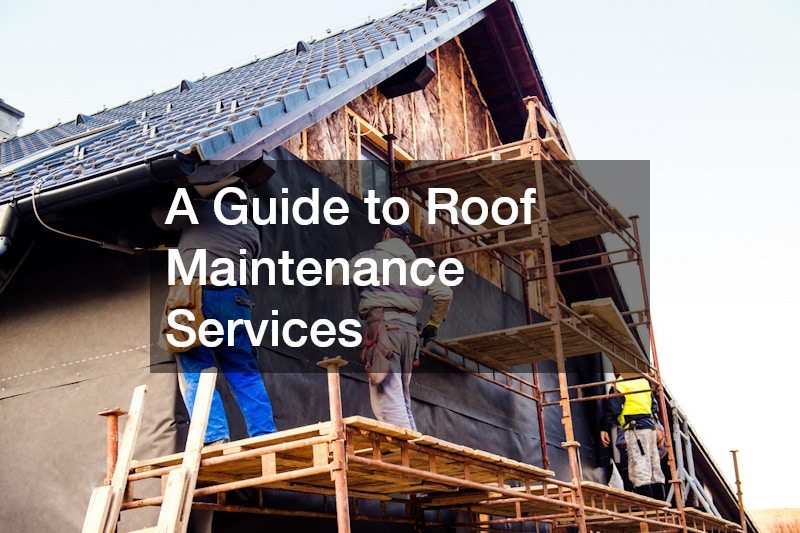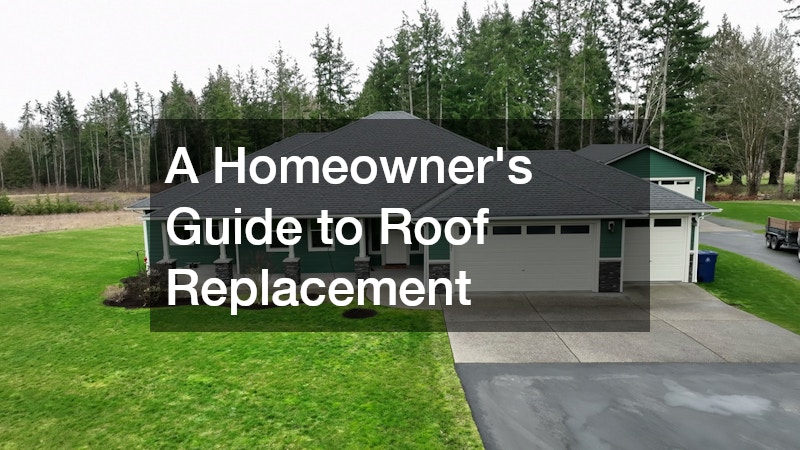Roof maintenance is a critical aspect of responsible homeownership. While often overlooked, your roof plays an essential role in protecting your home from the elements and preserving its structural integrity. Regular roof maintenance services are designed to detect problems early, prevent costly repairs, and extend the lifespan of your roofing system. Whether you’re working with roofing contractors for routine care or hiring a local roofer for specialized work, this guide covers everything you need to know about roof maintenance—from basic principles and service types to choosing the right provider and recognizing signs that your roof needs attention.
What is Roof Maintenance?
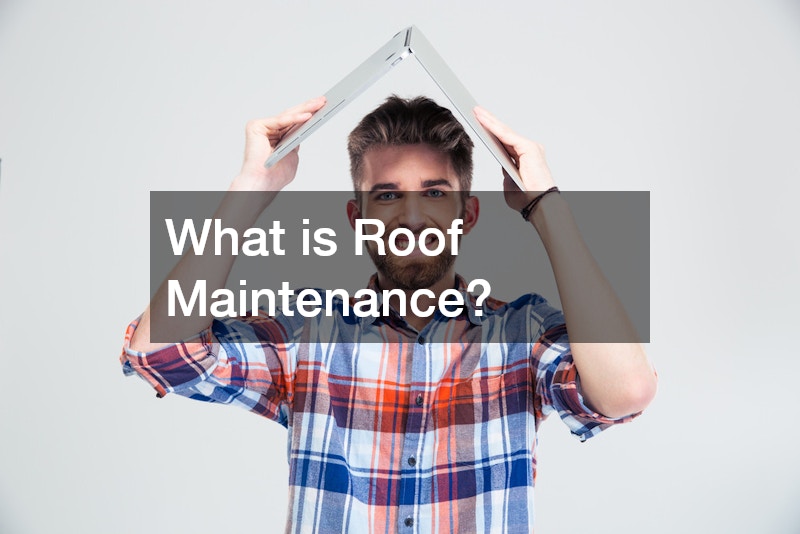
Understanding the Basics
Roof maintenance involves a series of tasks and services aimed at ensuring the optimal condition and longevity of your roof. It goes beyond merely fixing leaks or replacing shingles; it includes proactive steps to detect, prevent, and mitigate damage caused by environmental factors, wear and tear, and structural aging. Roofing contractors often offer packages that include everything from basic inspections to advanced treatments like roof coating and roof life extender coating applications.
Importance of Regular Maintenance
Routine maintenance helps avoid extensive repairs by addressing minor issues before they escalate. A neglected roof can result in water infiltration, mold growth, increased energy bills, and structural damage. Regular care not only ensures the safety and comfort of your home but also preserves its market value. Hiring a roofer to evaluate your system regularly is a smart, cost-effective strategy.
Common Maintenance Tasks
Typical maintenance services include visual inspections, replacing damaged or missing shingles, sealing leaks, roof washing, cleaning gutters, removing moss and algae, and checking flashing and ventilation systems. Local roofers and larger residential roofing companies can also provide preventative solutions like roof coating and routine roof repairs that target specific trouble areas before they worsen.
Frequency of Services Needed
Most experts recommend maintenance at least twice a year, typically in the spring and fall. However, this can vary depending on your region and the type of roof you have. Metal roofing contractors, for instance, may advise different timelines than those who specialize in asphalt shingle roofs due to differences in material durability and weathering.
Costs Involved in Roof Maintenance
The cost of roof maintenance depends on several factors: the size of the roof, the complexity of the design, the roofing material, and the services required. Basic inspections may start around $100 to $300, while full-service packages that include roof washing, minor roof repair, or the application of a roof life extender coating could range from $400 to $1,500. Though these costs may seem high, they are considerably lower than emergency roof repairs or premature replacements.
How Often Should Roof Maintenance Be Performed?
Factors Determining Frequency
Your maintenance schedule will depend on various aspects, including the age and condition of the roof, local climate, the type of materials used, and the presence of surrounding trees or debris sources. Homeowners with metal roofing, for instance, might find that they require fewer repairs but still need consistent inspections from qualified metal roofing contractors.
Signs Your Roof Needs Maintenance
Visible damage, signs of moisture inside the home, or issues with your attic’s ventilation system are telltale signs. Additionally, if your area recently experienced severe weather, it’s wise to schedule an assessment with a trusted local roofer to ensure no underlying damage has occurred.
Seasonal Considerations
Each season presents different risks. Winter brings snow and ice, spring introduces rain and potential debris buildup, summer heat can cause expansion, and fall contributes to gutter clogs from falling leaves. Adapting your maintenance schedule to these conditions helps protect your roof and home year-round.
Scheduling a Maintenance Routine
Establishing a maintenance routine with a reputable roofer or roofing contractor can prevent you from missing key service windows. Many companies offer seasonal service plans tailored to local weather patterns and your specific roofing material.
Benefits of Regular Checks
Regular maintenance helps extend the life of your roof, catch problems early, and reduce repair costs. It also ensures your home remains protected during extreme weather events and keeps energy bills in check through improved insulation and ventilation.
What Are the Signs Your Roof Needs Maintenance?
Visible Damage
Damage such as cracked or missing shingles, warped flashing, or rust on metal roofing are clear indicators of a problem. A roof repair may be as simple as replacing a few shingles or as complex as reinforcing structural elements beneath the roof surface.
Leakage and Water Damage
Stains on ceilings, musty smells, or water trails inside your home point to leaks. Roof repairs in this case need to be swift and thorough, often involving sealing points of entry and replacing compromised materials.
Aging and Wear
Most roofs are built to last 20 to 30 years, depending on the material. Asphalt and wood roofs may show signs of curling, cracking, or loss of granules. In contrast, metal roofing generally holds up longer but may still require sealing or recoating to prevent rust.
Inspection Red Flags
Professional inspections may reveal sagging areas, loose shingles, deteriorating flashing, or algae growth—all indicators that maintenance is overdue. Many residential roofing experts use drones or infrared technology for more precise assessments.
Common Problems Detected
Common issues include clogged gutters, poor drainage, nail pops, cracked sealant, and algae accumulation. Services such as roof washing and applying a roof life extender coating can address these concerns effectively, especially when administered by experienced roofing contractors.
What Roof Maintenance Services Are Available?
Inspection Services
Inspections are the first step in any effective maintenance plan. Roofers assess both the exterior and interior of your roof, checking for wear, ventilation issues, and insulation quality. Some companies use aerial drone imaging or thermal cameras for comprehensive evaluations.
Cleaning and Debris Removal
Roof washing is vital for removing debris, moss, algae, and lichen that can retain moisture and cause deterioration. In addition to aesthetics, a clean roof improves performance and prevents long-term damage.
Repair Services
Whether it’s a small leak or shingle replacement, roof repairs should be addressed immediately. A reputable roofer will offer timely fixes that stop minor problems from growing into expensive disasters.
Gutter and Drainage Maintenance
Gutters and downspouts are critical components of your roofing system. Clearing them regularly prevents water damage and ensures proper flow away from your home. Many local roofers include gutter cleaning as part of their maintenance packages.
Preventive Measures
Applying a roof coating or roof life extender coating can drastically improve your roof’s durability and water resistance. These coatings are especially popular among homeowners with flat or metal roofing, helping to seal seams and extend lifespan.
How to Choose a Roof Maintenance Service Provider?
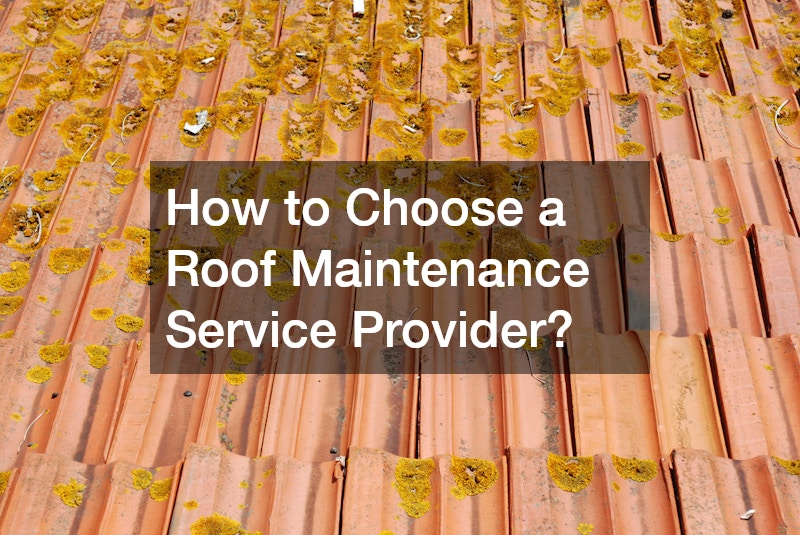
Qualities to Look For
A good roofing contractor should be licensed, experienced, and knowledgeable about various roofing systems. They should offer clear communication, fair pricing, and a commitment to customer satisfaction.
Checking Credentials and Certifications
Ensure your roofer is certified by recognized industry organizations. Certifications ensure the contractor meets industry standards and is trained in the latest techniques, including the application of modern roof coatings and safety protocols.
Comparing Quotes and Services
When comparing roofing contractors, don’t just look at the price. Compare what’s included in each maintenance plan. A comprehensive quote should outline inspections, roof washing, repair services, and additional protections like coating applications.
Customer Reviews and Testimonials
Online reviews can reveal insights about reliability, professionalism, and the quality of work. Ask neighbors or friends if they can recommend a local roofer or share their experiences with residential roofing services in your area.
Contract Considerations
Before signing any agreement, ensure it clearly outlines the services to be provided, timelines, warranties, and payment terms. Contracts should also specify whether materials like roof coating are included and under what conditions.
Can Roof Maintenance Prevent Future Repairs?
Proactive vs. Reactive Approaches
A proactive maintenance approach involves addressing potential issues before they turn into costly repairs. This might include applying a protective roof life extender coating, patching minor leaks, or reinforcing flashing.
Extending the Lifespan of Your Roof
Routine maintenance significantly extends your roof’s lifespan. Even simple actions like cleaning debris or scheduling regular roof washing can add years of functional life to your roof.
Identifying Potential Problems Early
Regular inspections by skilled roofing contractors help spot weaknesses early. Catching problems like small leaks, rust spots on metal roofing, or deteriorating sealant prevents full-blown roof failure.
Cost-Effectiveness of Maintenance
While maintenance requires regular investment, it is far more cost-effective than dealing with major repairs or total replacement. Applying a roof coating, for instance, can add years of performance at a fraction of the cost of a new roof.
Case Studies of Successful Prevention
Many homeowners have reported significant savings after implementing annual maintenance plans. One homeowner noted that after applying a roof life extender coating and fixing flashing early, they avoided a $10,000 full-roof replacement that would’ve been necessary within a year.
How Does Weather Affect Roof Maintenance Needs?
Impact of Different Climates
Extreme sun, humidity, heavy snow, or frequent rain all influence how often you’ll need roof repairs or inspections. Metal roofing contractors, for example, often advise more frequent sealing in coastal regions due to salt exposure.
Weather-Related Damage
Storms can loosen shingles, ice can cause ice dams, and hail can crack even the toughest roofing materials. After such events, it’s critical to bring in a roofer to assess and repair the damage promptly.
Seasonal Maintenance Tips
In fall, clear leaves and prepare gutters. In winter, check for ice dams. In spring, look for damage from snow loads. Summer is a great time for roof washing and applying protective coatings before storms arrive.
Adapting Services to the Environment
A knowledgeable local roofer will tailor services to the region’s climate. This could mean recommending specific coatings, scheduling more frequent inspections, or suggesting material upgrades.
Preparing for Extreme Weather
Proactive actions—like reinforcing flashing, replacing worn shingles, and applying roof coatings—prepare your roof to withstand extreme conditions and avoid emergency repairs.
What Are the Benefits of Professional Roof Maintenance?
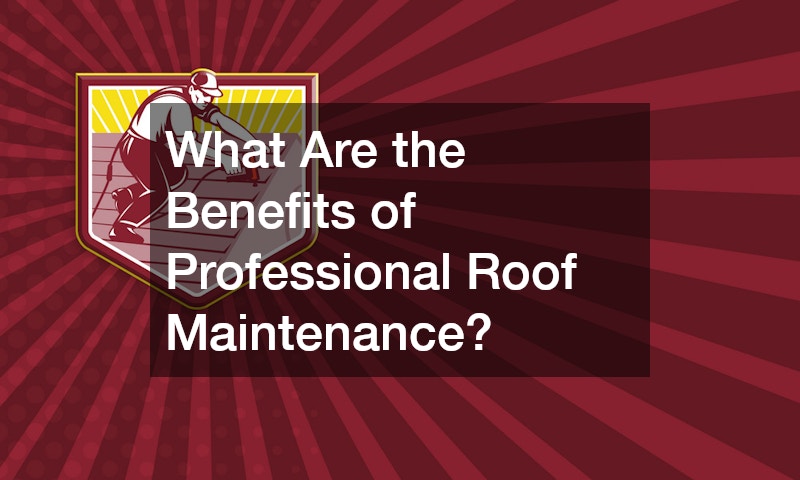
Expertise and Knowledge
Professional roofers have the training to spot problems quickly and recommend effective solutions. They’re familiar with all roofing materials, from traditional shingles to advanced metal systems.
Advanced Tools and Techniques
Modern roofing contractors use tools like drones, thermal scanners, and moisture meters to conduct thorough inspections. They can also apply advanced solutions like roof life extender coatings more efficiently than DIYers.
Safety and Liability Considerations
Working on a roof is dangerous. Professionals have the safety gear and training necessary to avoid injury, and they carry insurance to protect homeowners from liability in case of accidents.
Long-Term Cost Savings
Preventing issues through routine care saves money over time. Small investments in roof repairs and cleaning today can prevent costly replacements tomorrow.
Quality Assurance and Guarantees
A licensed roofer often provides warranties and service guarantees that ensure your roof stays protected. This accountability adds peace of mind for homeowners.
Are There DIY Roof Maintenance Tips?
Identifying Tasks Suitable for DIY
Simple tasks like cleaning gutters, inspecting for obvious damage, and light roof washing can be done by homeowners. However, more technical repairs or coating applications should be left to professionals.
Safety Tips for Homeowners
Always use proper equipment and never work alone. Avoid going on the roof during rain, wind, or when surfaces are wet. When in doubt, call a professional.
Essential Tools for DIY Maintenance
A stable ladder, gloves, safety harness, gutter scoop, and garden hose can help with basic maintenance. However, repairs and treatments like roof coating should be left to trained roofing contractors.
When to Call in Professionals
Any sign of a leak, structural damage, or extensive wear requires professional evaluation. It’s better to have a qualified roofer assess the problem than risk making it worse.
Benefits and Limitations of DIY
DIY maintenance is great for minor upkeep but can’t replace the depth of a professional inspection. Combining both approaches provides the most comprehensive care for your roof.
What Should You Expect During a Roof Maintenance Visit?

Initial Assessment and Evaluation
Your roofer will conduct a full visual and technical inspection of your roof, attic, and drainage system. They’ll document issues and take photos for reference.
Discussion with Service Providers
After the inspection, the roofing contractor will review findings and offer maintenance or repair recommendations. They’ll explain any issues and provide a written estimate.
Understanding the Maintenance Plan
The maintenance plan should include all services to be performed—such as roof washing, sealing, repairs, or coating—and outline expected costs and duration.
Completion of Services
Once approved, the roofer will complete the agreed tasks. Many residential roofing companies complete basic maintenance visits in a single day, depending on the roof’s size and complexity.
Follow-Up and Recommendations
After the visit, you’ll receive a service report summarizing what was done and any future maintenance needed. Some companies also provide ongoing service plans for continued care.
Final Thoughts
Consistent roof maintenance services are vital to preserving the integrity and safety of your home. From roof washing and inspections to roof repairs and protective coatings, these services offer both peace of mind and long-term value. By working with qualified roofing contractors—whether a local roofer or a team of metal roofing contractors—you can extend the life of your roofing system and avoid costly surprises. With proper maintenance, your roof will remain a strong and reliable shield over your home for decades to come.
